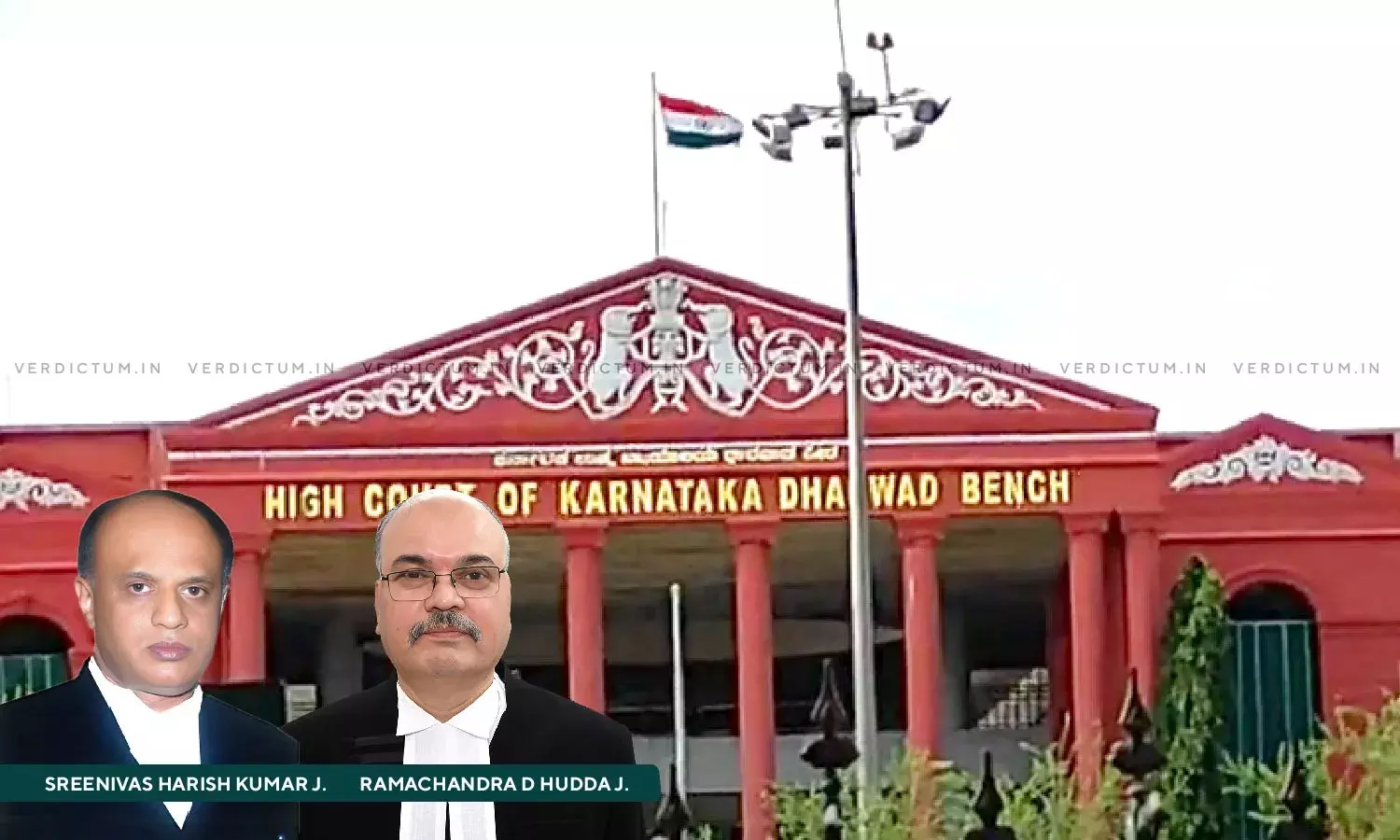Hindu Succession (Amendment) Act, 2005 Which Repealed Section 23 HSA Is Prospective In Operation With Retroactive Effect: Karnataka HC
The Karnataka High Court observed that Hindu Succession (Amendment) Act, 2005 which repealed Section 23 of the Hindu Succession is prospective in operation with retroactive effect.
The Court held thus in a case wherein the daughters (appellants) had filed appeals against the decision of the Principal Senior Civil Judge in a house property partition case.
A Division Bench of Justice Sreenivas Harish Kumar and Justice Ramachandra D. Huddar said, “The Amendment Act is held to be prospective in operation with retroactive effect. The Hon’ble Supreme Court has made this position clear in the case of Vineeta Sharma."
Advocate J.S. Shetty appeared for the appellants while Advocate H.N. Gularaddy appeared for the respondents.
Facts of the Case -
The plaintiffs’ (daughters) suit was for partition and separate possession of their 1/10th share each in thirteen landed properties described in schedule ‘A’ and four house properties described in schedule ‘B’ of the plaint. They claimed partition in schedule ‘A’ and schedule ‘B’ properties on the score that they were all ancestral joint family properties. They came to know that the defendants 1 to 11 created a false partition deed for their convenience, obtained their signatures and the signatures of defendants 12 and 13 deceitfully and obtained the mutations of the properties to their names. They stated that this mutation did not affect their share in the properties. The tenth defendant filed written statement which was adopted by defendants 1 to 9 and 11 and the specific contention in the written statement was that the first plaintiff was born before 1956 and therefore she cannot claim any share.
In 2000, there took place a partition in the presence of the elders and since the plaintiffs and the defendants 1 to 13 were parties to the partition, they could not claim partition again. The revenue entries were mutated based on the partition and it was also contended that items 10, 11 and 12 are the self-acquired properties of defendants 10 and 11. Defendant 12 filed a written statement stating that himself and defendant 13 were each entitled to 1/10th share and that the partition deed was a created document. Defendant 13 adopted the same written statement. The plaintiffs have filed the appeal as they were aggrieved by the denial of partition in schedule ‘A’ and defendants 1 to 12 preferred the appeal challenging the granting of partition in schedule ‘B’ properties.
The High Court, in view of the above facts framed following two issues for its consideration –
(i) Is the Trial Court justified in denying share to the plaintiffs in ‘A’ Schedule properties holding that they had given up their share when partition took place?
(ii) Can defendants 1 to 12 contend that in view of Section 23 of the Hindu Succession Act as it stood before amendment and the partition, the plaintiffs 1 and 2 and defendant 13 are not entitled to claim partition in schedule ‘B’ properties? Was there deemed abandonment of right to claim partition in schedule ‘B’ properties?
The Court in the above regard noted, “As there is ample evidence indicating oral partition having been acted upon, inference can be drawn that only plaint ‘A’ schedule properties were subjected to partition and that the plaintiffs 1 and 2, and defendant 13 voluntarily made it clear that they did not want any share in these properties. The Trial court is therefore justified in denying partition in ‘A’ schedule properties.”
The Court also said that the male members of the joint family did not derive any vested right in the house properties and that the defendants 1 to 12 could have obtained the house extracts mutated to their exclusive names.
“If the plaintiffs 1 and 2 and defendant 13 did not claim their share in the houses, that could have been mentioned in Ex.D.6. … the houses were allowed to remain undivided. It is made clear in the case of G.Saker that restrictive right contained in section 23 of the Act cannot be held to remain continuing despite the 2005 Act (as observed in paragraph No.32). No doubt section 23 was omitted by 2005 amendment”, further noted the Court.
The Court added by clarifying that Section 23 of the Act, as stood before repeal, applied when a Hindu died intestate surviving him or her both male and female heirs specified in clause 1 of the schedule to the Act.
“… restriction that existed earlier did not apply to dwelling houses belonging to coparcenary. This is what can be gathered from the language of Section 23 and the judgment of the Supreme Court in G.Sekar.”, said the Court.
Accordingly, the High Court dismissed the appeals,
Cause Title- Smt. Akkamahadevi & Ors. v. Smt. Neelambika & Ors. (Neutral Citation: 2023:KHC-D:11980-DB)




